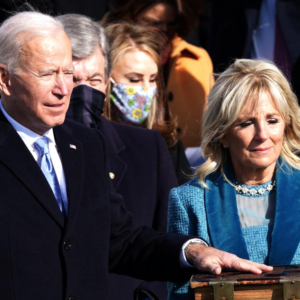On August 27, 2012, Colombian President Juan Manuel Santos announced that his government would begin peace talks with the Revolutionary Armed Forces of Colombia (FARC) as an attempt to end the 49-year civil conflict.
After six months of negotiations, the government and the FARC have agreed on land reform, one item out of the six-point agenda. This is a tremendous step, as former Vice President Humberto de la Calle stated, “never before has anyone come this far.”
Yet, the talks have become a political issue for President Santos. Despite having set a deadline for November of this year (and with a possible reelection campaign coming up), the talks do not seem any closer to ending. At the same time, the government has said that negotiations with the smaller National Liberation Army (ELN) guerrilla group can also be discussed.
Similarly, recent protests by farmers have put pressure on the government, which has stumbled in its management of the situation. Finally, former president and candidate for the Colombian Senate, Álvaro Uribe Velez, has come out against the peace talks and has criticized Santos’ government, particularly on the security front, as both the FARC and the ELN continue their attacks against civilians and the country’s infrastructure (specifically Colombia’s oil infrastructure).
Joining Uribe’s opposition to the peace process are human right activists, who state that the Legal Framework for Peace, a recent law passed by Congress and upheld by the Supreme Court, undermines Colombia’s human right laws and international treaties.
Under the Framework, punishments would be lower for rebels that confess to their crimes, compensate victims, and agree to disarm. The Framework would only apply to the FARC and the ELN, but not drug traffickers and former paramilitary groups.
All of these factors have taken their toll, hindering President Santos’ public opinion, which stands at around 21 percent as of early September. This is a low number given next year’s presidential election where Santos is believed to seek reelection.
Another poll shows that around 75 percent of Colombians disapprove of the way the president is handling negotiations, while 77 percent said that they disapprove of Santos’ ability to handle the economy.
These are worrisome numbers for both President Santos and the FARC: the president will have to announce his decision to run in November, while the FARC knows that a deal is only possible if Santos wins reelection. Although ending the civil conflict is the ultimate accomplishment for a Colombian president, if an Uribe-backed candidate defeats Santos, the talks are likely to end and the government will expand its military operations against the guerrilla groups.
Colombia’s civil conflict has taken a toll on the country and society, and it will take a tremendous effort by both the government and the guerrillas to come to an agreement. Although this is not the first time guerrilla groups have been incorporated into Colombian politics (another group, the M-19, disarmed, received pardons, and became a political party and were incorporated through a Constitutional Assembly that drafted the current 1991 Constitution), this one will take a longer time. Finally, although the U.S.-backed Plan Colombia successfully provided the government with has the capacity to push back against the FARC and the ELN, a military solution is highly unlikely. At the end, Colombians will decide the fate of the negotiations through next year’s election.
____
Read this and more at the Cornell Latin American Student Society





